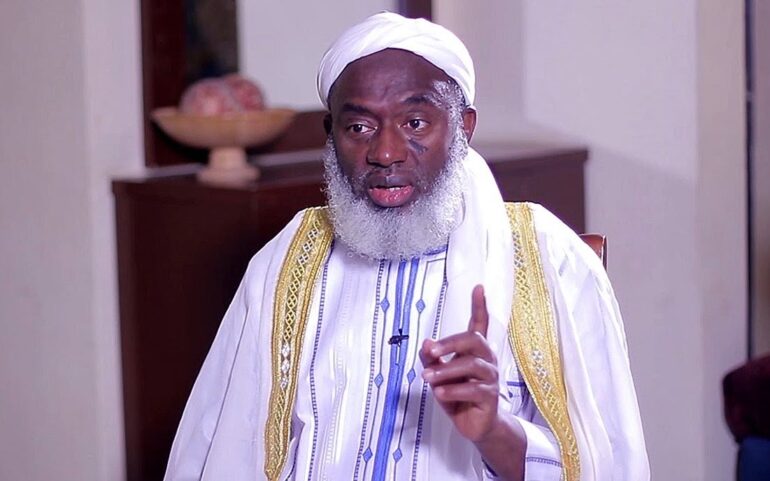Islamic cleric Sheikh Ahmad Gumi has defended his advocacy for a non-kinetic approach to tackling insecurity in Nigeria, stating that he would lead calls for the release of the convicted leader of the Indigenous People of Biafra (IPOB), Nnamdi Kanu, if the latter shows genuine remorse.
Kanu was convicted by the Federal High Court in Abuja on seven counts of terrorism. Speaking on Tuesday’s edition of Channels Television’s The Morning Brief, Gumi said that if Kanu expresses regret for his actions and calls for peace, he would be among those advocating for his pardon.
“This Kanu, who was imprisoned for terrorism for agitating that our soldiers should be killed—if he now shows remorse and calls for peace, honestly, I will be at the forefront calling for his pardon and amnesty,” he said.
Gumi referenced historical precedents, noting, “Look, Shagari, our president, we are from the same town. Shagari gave amnesty to Ojukwu. Look at Umaru Yar’Adua; he gave amnesty to the Niger Delta militants, who also committed acts of terrorism. So, this is how we are.”
A long-time advocate for non-kinetic approaches to security challenges, particularly in northern Nigeria, Gumi argued that dialogue and negotiation should take priority over military action.
“Since we have people willing to lay down their arms, why must it always be kinetic?” he asked.
He further highlighted the limitations of conventional military strategies, citing international examples: “Even America could not succeed in Afghanistan, and even Israel could not succeed in a small strip of land. Our army is not designed for guerrilla warfare; no army is designed for the kind of situation we are facing now.”
Gumi also stressed the potential for peace if armed groups are engaged constructively. “If you call the Fulani herdsmen for peace, they come with their guns for various reasons. Can you call IPOB for peace? Can you call Boko Haram? The former president tried, and they came—but now it is difficult to call them again. So, anyone who inclines towards peace, I’m with them.”
His comments come amid escalating insecurity in Nigeria, including recent mass abductions of schoolchildren and worshippers across several states. While President Bola Tinubu has ordered security forces to pursue the perpetrators, opposition figures have criticized the government’s response as inadequate.


